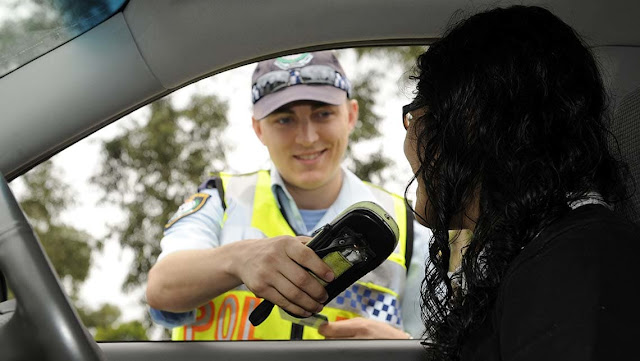Parenting Party and Gathering Rule Number 1: If your child says you 'can't' do something, that means you 'must'!
 When it comes to teenage parties and gatherings there are some simple parenting rules I believe are incredibly important, all of which help to ensure your child's safety. Over the next couple of weeks, I'll highlight each of these in my blog entries and try to flesh them out a little in an effort to assist parents to understand why they are so important and provide some tips on how to put them into action. Let me start by saying that none of them will be easy and I am sure that your teen will not like you doing them but parenting isn't easy and hopefully you didn't become a parent and expect to be 'liked' all the time ...
When it comes to teenage parties and gatherings there are some simple parenting rules I believe are incredibly important, all of which help to ensure your child's safety. Over the next couple of weeks, I'll highlight each of these in my blog entries and try to flesh them out a little in an effort to assist parents to understand why they are so important and provide some tips on how to put them into action. Let me start by saying that none of them will be easy and I am sure that your teen will not like you doing them but parenting isn't easy and hopefully you didn't become a parent and expect to be 'liked' all the time ... Adolescence is a time when young people are trying to establish their own identity, pulling away from their parents and becoming more influenced by same-age peers. I've talked about this before but in his book You and Your Adolescent, Laurence Steinberg says that 14-18 is "a time for distinguishing oneself from the crowd". He says that during this time parents should expect their child to do things such as start change their interests, plans and friends (e.g., they may stop playing the violin after years of lessons and awards, or simply drift away from the best friend they started school with for no apparent reason) or they may begin to obsess about their appearance. Although we tend to think about extreme change here (e.g., tattoos and piercings) and how they dress (e.g., becoming a 'goth') or wear their hair, it could be far more simple like adding new words to their vocabulary or adopting new mannerisms.
For many (but certainly not all) teens, parties and gatherings are a big part of working out where they fit in an adolescent world. Socialising with same-age peers is incredibly important during this time and being accepted (or not) by this group can be the difference between simply 'surviving' or 'thriving'. What social group do they belong to, who is accepting them (who isn't!) and who do they want to be accepted by are all questions that are in some part answered by attending weekend parties. These social gatherings are also a place where they start to establish 'sexual' relationships and all the associated joy, tears and drama that goes along with that. As much as you see relationships at school it really is at parties on the weekend where 'couples' openly display their affection for each other, start to establish rules and boundaries around relationships in their group, as well as the expectations around all the social interactions that result. As such, these parties and gatherings are incredibly important and play a major role in setting up our young people up for their adult life ahead.
So with that in mind, what is Parenting Party and Gathering Rule Number 1? It's simple and should be a mantra that every parent should share with others as often as possible ... 'If your child says you 'can't' do something, that means you 'must'!'
When it comes to parties, the kind of things that parents are usually told they 'can't' do are as follows:
- "You can't call the parents who are putting on the party"
- "You can't drop me off at the party"
- "You can't pick me up"
With that said, it is important that when you do these things you make an effort to minimise any potential embarrassment that could be caused. Let me start by saying though that if your child is in Year 8 or 9 (aged around 13-14 years), I believe that you should be making the call before the party and actually walking them to the door of the house they will be partying in - damn the potential embarrassment! They're still children and at that age you want to know who's looking after them for the evening and where they'll actually be. This ridiculous practice of dropping a 14 year-old off at the end of a driveway and not even watching them go into the house is unbelievably dangerous and borders on child abuse as far as I'm concerned. Time and time again I hear of parents who do this because they are bullied into it by their child telling them that they will be embarrassing them in front of their friends if they're seen anywhere near the party. Big deal! Get over it - they're 13 or 14 - they'll survive it and so will you! They won't like you for a while but at least you'll know you did your best to keep them safe ...
When they get to Year 10, however, and you want to call a parent about a party they are holding, plan the call and attempt to involve your teen in this planning. Try to have a conversation with your son or daughter beforehand and discuss what you are going to say and ask for their input. This is not going to be an easy discussion but make it clear that you are going to make the call regardless, tell them why you are going to do it but also ask them if there is anything that they don't want you to say and if you can, respect their wishes. As they get older and trust is built, only call when you feel it is necessary. Once again, ask for their input - what do they think the party is going to be like? Tell them that you are going to start to rely on their judgement about how much you need to find out about the parties they want to attend. The same goes for taking them and picking them up - make sure what you do is age appropriate and reward good behaviour. At 15 years-old, every teen should be picked up from a party on a Saturday night and if you're not doing it, you should have a strong and trusting relationship with the parent who is ... This should start with you either going to the door to get them at the agreed time or meeting them at the end of the driveway at the very least. As they get older and trust is built, you may agree to park two doors down from the house, on the nearest corner or the like ...
The rules around alcohol and parties you set for your teenager must be both fair and age-appropriate. As I've said, they need to change as they get older and you need to reward good behaviour. As Steinberg says, one of the biggest mistakes parents make at this time is overcontrol. So how do you do all these things in an attempt to protect your teen but not run the risk of overcontrolling? Basically you pick your battles ... there are issues around their personal safety that you simply can't compromise on, particularly when they're in their early teens and not able to make good choices for themselves and then there are others where you realize that they may stumble and fall but they'll survive them (particularly when they get a little older) and learn from their mistakes.
If your teen wants to go to a party and you don't think that it will be safe, however, this is where you do stick to your guns and the rules and boundaries do come into play. Fight with them about everything, however, and your life will be very difficult. If you let the ones that really don't matter slide once in a while you'll find yourself having a much easier time. And remember, always look for opportunities to allow your child to do something - it shouldn't be about wrapping them up in barbed wire and saying 'no' all the time. When you do say 'no', make it clear why and don't back down.
Reference: Steinberg, L. (2011). You and Your Adolescent. The Essential Guide for Ages 10-25. Simon & Schuster: New York.



Comments
Post a Comment